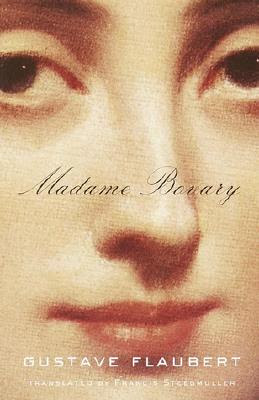Madame Bovary
Gustave Flaubert
Published 1856
French Novel
The Well-Educated Mind Novels
⭐⭐⭐⭐⭐
The Three Stages of Inquiry on Madame Bovary:
I. Grammar Stage Inquiry [The What]
Really, what is the most important event?
May I answer a question with a question? Is the most important event when Madame Bovary begins her affair with Rodolphe or when she commits suicide?
She was always restless and bored. The author never alludes to her falling in love with Charles. She remains the same throughout that relationship; and she mistakes lust for love in each of her affairs. So there is no change there. However, once she actually begins an affair with Rodolphe, she becomes brazen, careless, reckless, obsessed, and uncontainable, like a drug addict who cannot get enough. One bad choice snowballs into more bad choices, and she goes from bad to worse.
Then there is her suicide, which is a continuation of her wicked and selfish desires that finishes her off, but the only change now is that she is dead. And even if she can no longer make bad choices, now her husband is continuing in her legacy, spending and borrowing carelessly until he succumbs to depression, just as she did.
So where was the change? I am stumped!
II. Logic Stage Inquiry [The Why and How]
What in the world does this woman want?
Madame Bovary wants contentment, personal-fulfillment, and self-satisfaction.
So what’s the problem?
The woman is never satisfied. Typical! Everything is standing in her way: her marriage, her husband’s weaknesses and faults, her gender, her social status, her child, etc.
III. Rhetoric-Stage Inquiry [The So What]
What’s the point of the story?
Good question! Why did Gustave Flaubert even bother to write such a provocative plot, which caused him to get arrested, no less? My goodness!
One argument: making expectations is not such a good idea. Emma was dissatisfied with her lot in life, and she spent too much time thinking about what her life could have been like if she did this differently or married someone else. Much of her “what ifs” were out of her control.
Another argument: humans can be foolish. Because Emma’s expectations were unattainable, and she was determined to change her place in life, she made foolish choices that caused her to feel out of control emotionally and put her deeper into debt. And let us not forget that many of the other characters were making foolish decisions as well, such as Hamais and Charles in their “get rich and famous quick” scheme to cure Hippolyte’s club foot.
Another argument: the quest for happiness through others or possessions or social status or money is paved with disappointment and is a dead end. Things, social status, and money are no brainers for those of us who walk with two feet on the ground: they do not bring happiness. But Madame Bovary was not well grounded, and her desire to find happiness and contentment through lustful adventures left her confused; instead she was burned because she had expected to be fulfilled through the men she was with.
Another: women in the nineteenth century were stifled creatures of their time. Women were truly locked into their status and roles of the day with not much chance to change their own lot in life. Madame Bovary of the nineteenth century would have blended nicely into our century without much offense. But is this a case for her adulterous behavior and foolish spending?
Emma read those romantic novels, which set her heart on fire for excitement, love, celebrity, and social accomplishment, which she could not achieve because her expectations were irrational. Could a woman in Emma’s place ever have been satisfied with her life as it were? I believe so. We just do not usually hear about those stories of woman who were content with their lives and duties, even if they were stifling or unexciting. And that is probably why no one really wrote about them.

No comments:
Post a Comment
Share your thoughts...